PPC Keyword Research 101: Four Sources You Should Be Leveraging
Welcome to class everyone. Today’s topic of discussion will be Keyword Research: The process by which you determine which keywords to use with your Google Ads. There will be no quiz at the end, but if you master this topic, your PPC world ranking will most certainly jump a few levels.
So, where to begin? Well first, it’s important to understand the relationship between search ads and keywords, if you don’t already know. I’ll let Google take it away with their explanation:
“Your ads can appear with Google search results and on other search sites when your keywords are relevant to a user’s search.”
Alright so what exactly are keywords? One more time let’s give it up for Google:
“Words or phrases describing your product or service that you choose to help determine when and where your ad can appear.”
Now that we have that out of the way, put on your scuba gear as we take a deeper dive.

Two important questions to consider when starting your keyword research (KR):
I. What questions are being asked by those interested in my company’s products and/or services?
and
II. How can I best answer those questions with the keywords I choose?
Having these in mind as you do your KR will guide you to those keywords with the most value and avoid ones that may seem relevant but really aren’t.
Much has been written about this topic, and there is a myriad of approaches you can take. And depending on the size of your company, you may have a keyword list that is a thousand deep by the end. But today we will focus on at least 4 primary sources you should be leveraging to perform your KR.
1. Current Structure
2. SEO Data
3. Competitor Sites
4. Your Website
1. Current Structure

No need to reinvent the wheel, just make it better. A good place to look when beginning your KR is the current structure/keywords. Look at the current keywords being used and look at historical data to determine if there are quality keywords already being targeted. Take a deeper look by reviewing search query reports to identify relevant terms that yielded good results but weren’t already being targeted. In short, look for what has worked in the past, what relevant themes/keywords are already set up, and which keywords need to be removed. There is gold in the dirt. It just takes a little mining.
2. SEO Data

Team SEO or Team PPC? Which side are you on? Hopefully by now you have learned the two work more as teammates then as opponents of one another. But if you’re still not convinced, please read on. Another great source when performing KR is SEO data. If you have an SEO partner, you can reach out to them for data on relevant keywords they have identified, good ideas for keywords to add, and other insights. If you don’t have an SEO partner don’t worry. There is still Google Analytics. With Google Analytics there are various ways to analyze your organic traffic to identify good candidates for relevant keywords. However, a good SEO partner is well worth the investment and can come in extremely handy when starting to expand to PPC.
3. Competitor Sites
If you can’t beat’em, hijack’em.  If you get stuck or just feel like you have expended all your brain cells coming up with keywords and ways to find keywords, take a trip over to your competitor sites. A competitor’s site can be filled with insights about how others refer to your products and/or services. These new terms can then be added to your list of keywords. In addition to exploring your competitor’s sites, there are tools like Spyfu and Semrush that can show you actual keywords they are using for Google Ads. A little competition never hurts right?
If you get stuck or just feel like you have expended all your brain cells coming up with keywords and ways to find keywords, take a trip over to your competitor sites. A competitor’s site can be filled with insights about how others refer to your products and/or services. These new terms can then be added to your list of keywords. In addition to exploring your competitor’s sites, there are tools like Spyfu and Semrush that can show you actual keywords they are using for Google Ads. A little competition never hurts right?
4. Your Website
Believe it or not, more times than I’d like to share I have seen companies forget to look at their own site when doing KR. This is one the best places to look for identifying relevant keywords that help answer those 2 questions I mentioned at the top. You remember what they were? Would you like me to repeat them here? Sure, why not.
I. What questions are being asked by those interested in my company’s products and/or services?
II. How can I best answer those questions with the keywords I choose to use?
So, take a gander at your site. Which terms on there answer those questions your potential customers are asking? What does your company sell/offer? What kind of deals do you have? Why should I choose you over the competition? Add those answers to your super awesome list of keywords to complete your KR.
There you have it. Keyword Research 101: Four Resources You Should be Leveraging.
1. Current Structure
2. SEO Data
3. Competitor Sites
4. Your Website
You are now well equipped to build out the most awesome campaigns, ad groups, and ads within Google. The more effective your Keyword Research the easier it is to build out the rest. If you are not quite sure where to go after this initial step however, don’t worry. The masters of PPC at Megethos are happy to help. In fact, if KR is something you don’t feel comfortable with, let us help you with that too. Contact us today! All things PPC is what we are about.
















